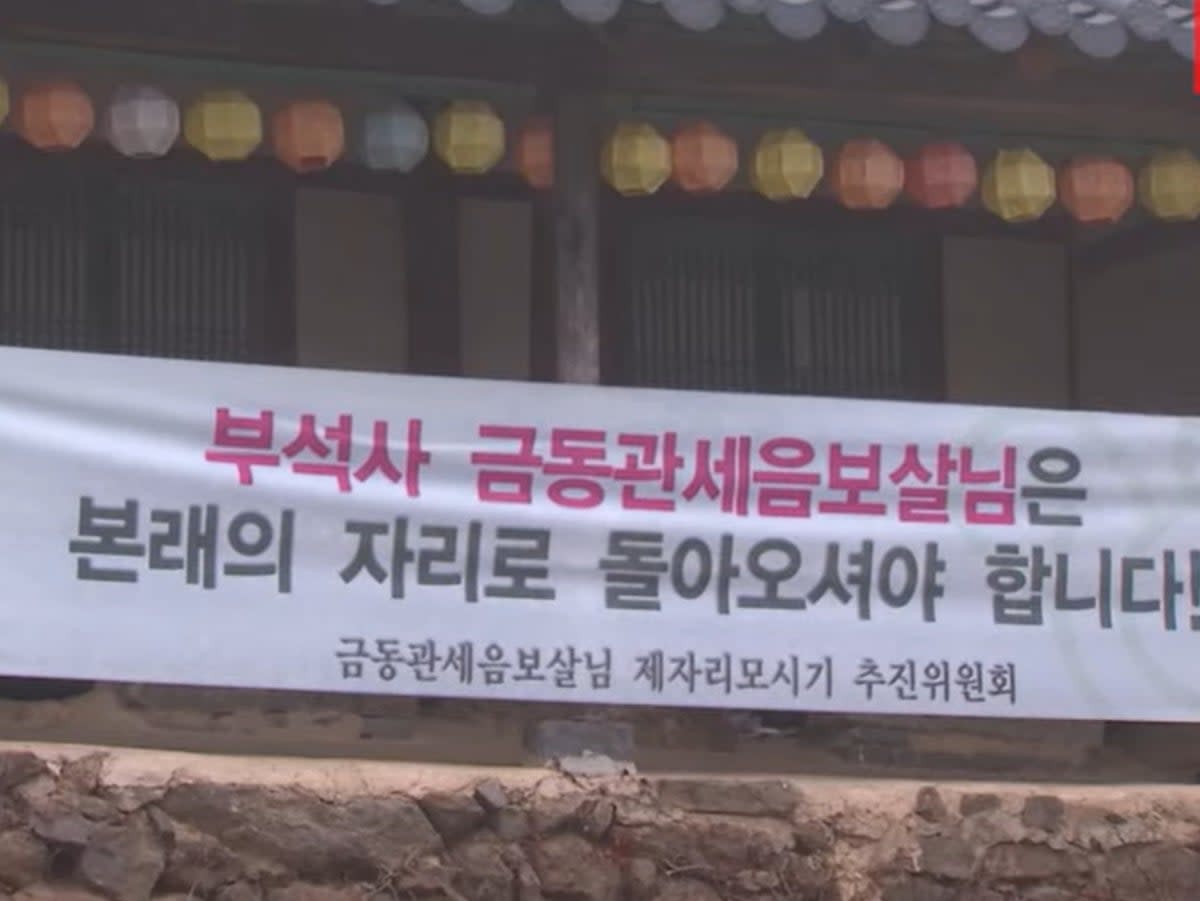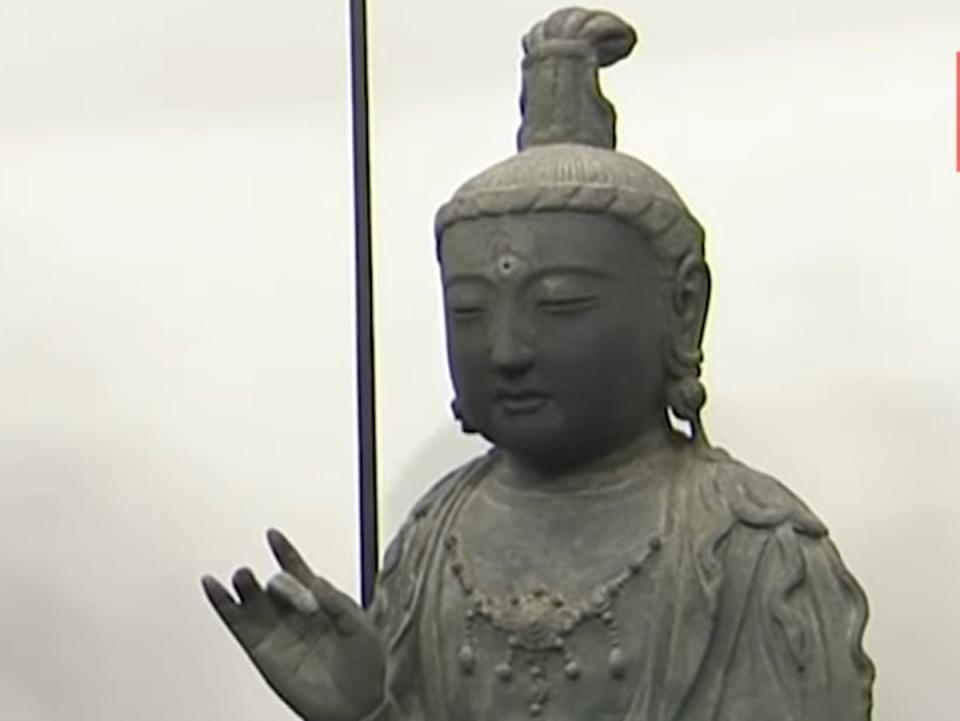South Korea to return 14th century artefact to Japan after landmark court ruling

South Korea will have to return a 14th-century Buddhist statue to Japan, the country’s Supreme Court said in a ruling on a dispute that had become a thorn in the bilateral relationship between the two countries.
This ruling puts an end to the long-standing legal dispute between the countries concerning the 50cm (20 inch) statue stolen from Kannonji, a temple on Japan’s Tsushima island in Nagasaki prefecture in 2012.
The court on Thursday rejected claims of ownership for the statue made by Buseok – a Buddhist temple about 100km (62 miles) south of Seoul.
According to reports, the thieves were caught trying to sell the statue after returning home and the statue then came under the purview of South Korea’s authorities. The Buseok temple filed a lawsuit in 2016 asserting ownership over the statue.
South Korean authorities claimed Japanese pirates had stolen the historical artefact from their temple hundreds of years ago.
After the apex court’s ruling, Japanese authorities announced they would ask theBuseok temple to return the 700-year-old seated Bodhisattva statue.
The statue, that the Nagasaki prefecture designated as its “cultural property”, will now be returned to Kannonji.
The court said the South Korean temple had lost ownership of the Buddha statue due to the length of time it had been in the possession of the Japanese temple. It also noted that Kannonji satisfies requirements to be recognised as the statue’s owner under Japan’s Civil Code.
The Kyodo news agency quoted Setsuryu Tanaka, the chief priest of Kannonji, as saying that the ruling was “reasonable” and that he wanted the Buddha statue to be returned to the southwestern Japan island.

A chief priest of the South Korean temple, however, condemned the ruling. “Our Supreme Court has legalised armed and illegal looting. This is such a barbaric ruling, and we cannot accept it at all,” said Won Woo, the chief priest.
The latest court ruling comes after a previous order by a higher court in South Korea in February 2017 said the statue should be handed over to the South Korean temple.
The ruling had led to the worsening of ties between the two countries.
On Thursday, local media was quick to note the timing of the Supreme Court ruling. Many reports said it comes at a time of improving Japan-South Korea relations, following South Korean president Yoon Suk-yeol’s commitment in March to address its longstanding wartime labour dispute with Japan.
In Tokyo, deputy chief cabinet secretary Hideki Murai said the Japanese government “will urge the South Korean government to promptly return the Buddha statue” to its owner, the Japanese temple.
The statue is currently being held at the National Research Institute of Cultural Heritage in the central Korean city of Daejeon, according to the Yonhap news agency.
Additional reporting by agencies

 Yahoo News
Yahoo News 
